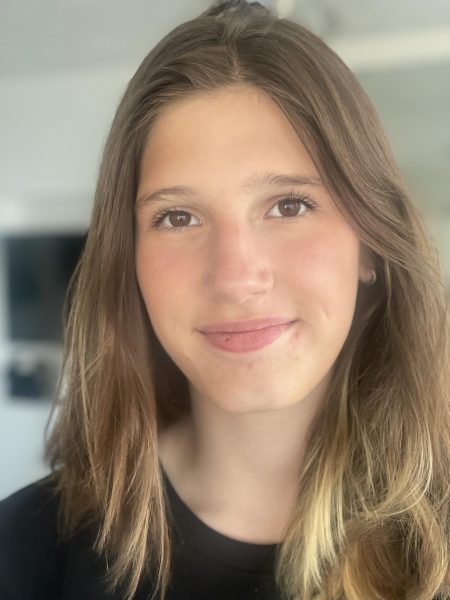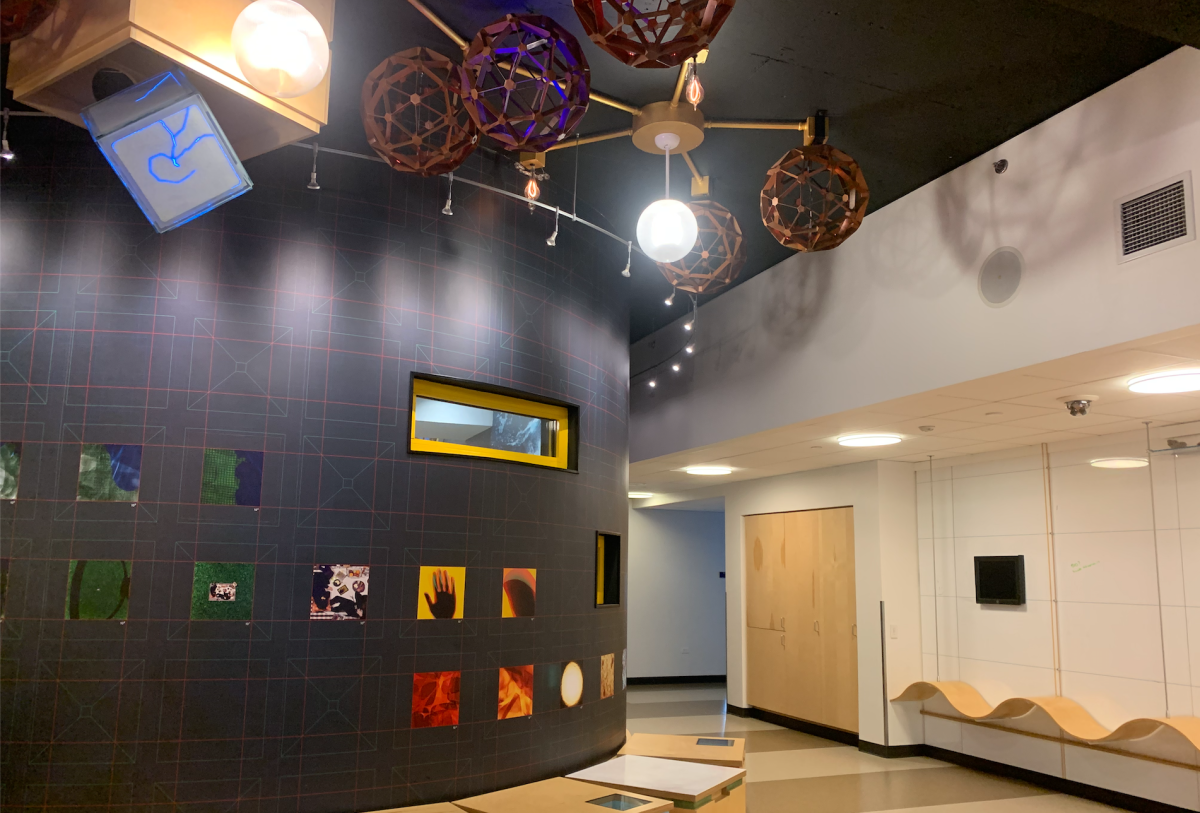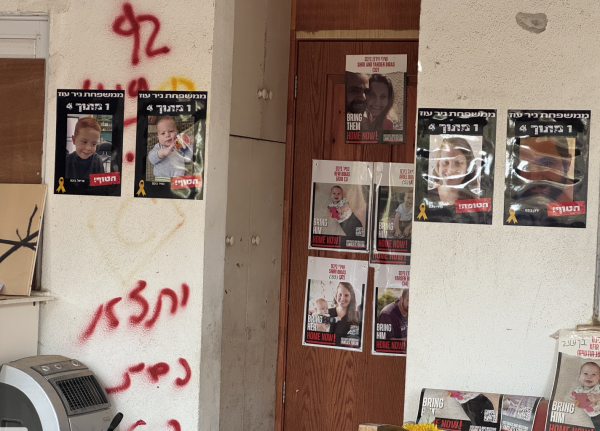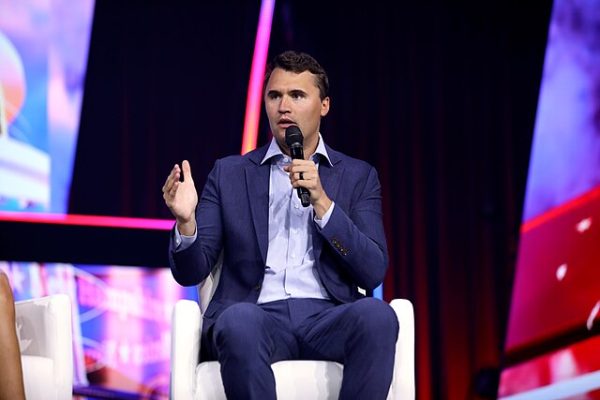With No Astronomy or Cosmology, Sophomores Have Limited Science Elective Options
Latin’s science center, located on the fourth floor of the Middle School.
With Upper School physics teacher Steven Coberly out on sabbatical, there are only two science electives open to sophomores this year. Tenth graders can opt to design their own Independent Study Project (ISP) or take the bioethics elective, which was filled up entirely by juniors and seniors.
Mr. Coberly taught both Stellar Astronomy and Cosmology, the only other science electives available for sophomores. They touch on similar topics—the study of space and the study of the universe—and include a great deal of physics.
Sophomore Luca Noventa said, “I know I’m really interested in taking a lot of these science classes. I really enjoyed physics, and I thought maybe that would translate into enjoying stellar astronomy or cosmology.” Luca originally signed up for Cosmology, only to learn the class would not be running this year.
I would have liked to double up on science classes this year, too, but with Stellar Astronomy and Cosmology canceled, and the other courses only open to juniors and seniors, I worry I will not have enough time to complete all of my desired courses within the next two years. Full-year courses make your schedule less flexible by giving less mobility in schedules, and the more popular courses are even more difficult to join. The schedule difficulty that comes with year-long classes makes them harder to get into compared to semester-long courses.
Course prerequisites also keep people from joining the classes that they would like to. Luca noted the specific list of courses you need to have taken to enroll in certain classes, whether that would be in science or math. “It would be a shame if I couldn’t take AP Physics if I wanted to just because I haven’t taken AP Calculus yet,” he said. In order to take either of the AP Physics classes, you must be enrolled in AP Calculus AB or BC.
All of the current science electives are rooted in the three core science classes (physics, chemistry, biology). Each elective requires at least one of those as a prerequisite, oftentimes multiple. I would like to see what would happen if Latin had a science class that didn’t stem from another branch of the core three classes—a meteorology course, for instance. However, that would require more staffing and teachers who are able to teach not only that course but others as well, so I understand the difficulty that comes with adding new courses. Even so, these classes would not only give sophomores more science options, but also introduce students to more branches of science, not just those within the bounds of the core three.
Sophomore Morgan Sirek also intends to take multiple science courses beyond the required three throughout their high school career. They said, “I am interested in both STEM and the arts. I wanted to take equal numbers of STEM electives and arts electives so I can pursue and learn about my interests.” They expressed their frustration with the few science electives offered, and shared their perspective on the topic. “This year I’m only taking arts electives because there were no math or science electives that I could take.”
However, I have filled the Stellar Astronomy and Cosmology-shaped holes in my schedule with other STEM-centered electives. The cancellation of those classes turned into an opportunity for me to take classes that I wasn’t able to join last year and explore new topics such as Computer Science Principles 2. Yet the problems that come with fewer available STEM electives still remain. I now have to decide which classes interest me the most so I will be able to take all of my most desired classes. Course availability may stunt these plans, as courses are never guaranteed.
Upper School physics teacher and Science Department Chair Melissa Dowling said, “It’s a little bit tough because of staffing [challenges]. We’re all busy with a lot of core classes, and if we’re adding on some electives to that, it just becomes a little bit more difficult.”
Whether a course is popular also seems to be an issue with creating more electives. Ms. Dowling noted that only three people showed interest in Physics 2 this year, an extension of freshman physics that is neither an honors nor Advanced Placement course. It is hard to run a course with so few students, and I believe that it would be a better use of the teacher’s time to run a class that will interest students instead of one that will not. With limited staffing, the teachers’ use of time is of the utmost importance.
There are many challenges that come with implementing new courses into the Latin curriculum. Nonetheless, I believe students should be given more opportunities to explore the available courses throughout the school year.
“[The Science Center is] always open to ideas, not to say that we always can make that class happen or that there would be enough interest,” Ms. Dowling said. This lets me know that although they have tried to give people suggested electives in the past, they have not always worked out, and that there is a reason for not including more electives for sophomores.
While the sophomore science electives lack variety right now, there is room for improvement, an improvement I am eager to see.

Carolena Tognarelli (’26) is a sophomore at Latin who joined The Forum this year. She enjoys writing creatively, but will never pass up an opportunity...



















































